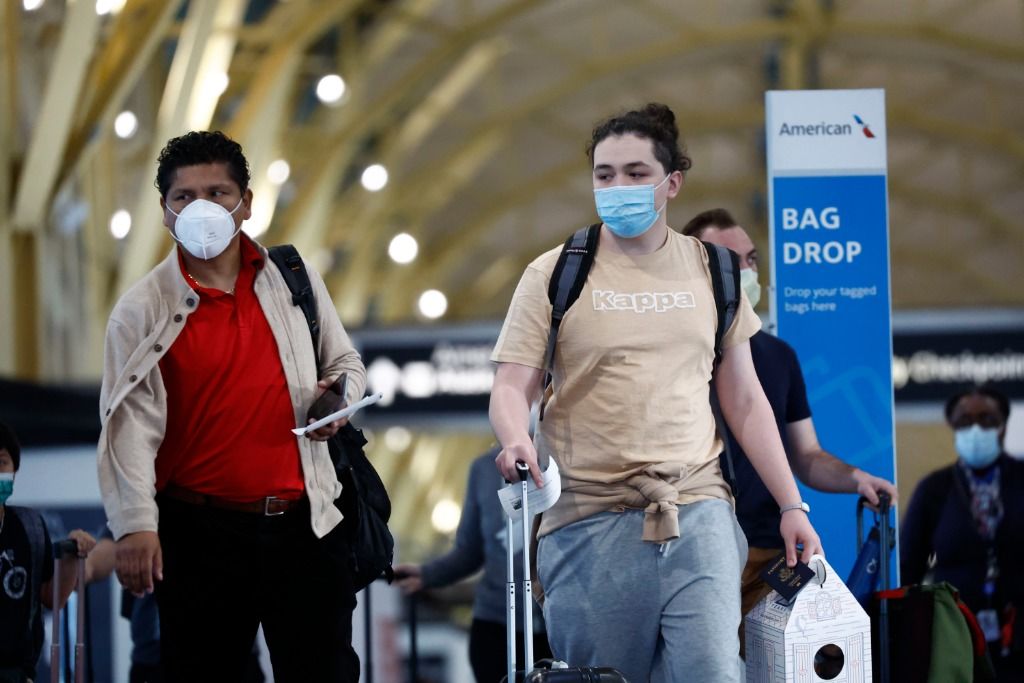Xinhua News Agency, Beijing, April 29th. The European Center for Disease Control and Prevention, a health and epidemic prevention agency under the European Union, released a risk assessment report on the 28th, focusing on the recent increase of unexplained acute hepatitis cases in children reported in many European countries.
Although the incidence rate is “very low,” it still constitutes a “public health event of concern” given that the pathogen has so far not been identified and some children are seriously ill, the report noted.

This is an ambulance taken outside a hospital in Liverpool, England, on April 1. Published by Xinhua News Agency (Photo by Jon Hupper)
On the same day, the World Health Organization said that at present, such cases are not related to the new crown vaccination. Possibly caused by an adenovirus.
The European Centers for Disease Control and Prevention reported that as of April 20, the United Kingdom had reported 111 cases of acute hepatitis of unknown cause in children; as of April 27, 12 countries in the European Economic Area had reported a total of 55 suspected cases. or confirmed cases, including Austria, Belgium, Denmark, France, Germany, Ireland, Italy, Netherlands, Norway, Poland, Romania and Spain.
Outside Europe, the United States and Israel each reported 12 cases, and Japan reported 1 case.

On April 1, people wear masks on a bus in Berlin, the capital of Germany. Published by Xinhua News Agency (Photo by Stefan Zeitz)
The European Center for Disease Control and Prevention believes that although systematic monitoring has not yet been carried out, the current incidence rate seems to be “very low”. Due to the unknown pathogen and unclear signs of human-to-human transmission, cases are in a “sporadic state of unknown trend” across the EU, so it is impossible to accurately estimate the health risk of the disease to European children at this stage.
The report pointed out that most of the children were under the age of 10, and many of them were under the age of 5; the children had no underlying diseases before the onset of the disease. At present, most cases have recovered, but several children developed acute liver failure and required liver transplantation. The agency recommended enhanced surveillance and hygiene measures to prevent the disease from spreading further.
On the day the report was released, the Cyprus Ministry of Health reported two cases of acute hepatitis of unknown etiology in children, aged 5 and 4, who developed symptoms in November last year and March this year.

A traveler wears a mask at Reagan National Airport in Arlington, Virginia, U.S., April 14 Walk in the terminal. Published by Xinhua News Agency (Photo by Shen Ting)
Earlier on the same day, Richard Peabody, an infectious disease expert at the WHO Regional Office for Europe, said , WHO has recorded about 170 such cases in 16 countries, most of them in Europe, the patients are between 1 month and 16 years old, about 10% of the cases require liver transplantation, and at least 1 case has died .
The common hepatitis A, B, C, D, and E viruses were not detected in the discovered cases, at least 20 patients tested positive for the new coronavirus, and 19 patients were infected with both the new coronavirus and adenocarcinoma. Virus.

April 27, in Brussels, Belgium, Kiri, Commissioner for Health and Food Safety of the European Commission Akidis put on a mask after a news conference. Kirakidis said at a press conference on the same day that it is estimated that as of now, 60% to 80% of the EU population has been infected with the new crown virus. EU member states need to be highly vigilant and prepared for new outbreaks and mutated viruses “because the pandemic is not over yet”. The survey found that most The child was not vaccinated against the new crown, “so there does not appear to be a link between the two at present”; adenovirus was detected in some cases, which is a “hopeful (determination of the cause) sign.”
The British health agency said on the 25th that of the 111 cases of acute hepatitis of unknown cause reported in the United Kingdom recently, 10 children received liver transplantation, and no cases died. Investigators detected adenovirus in 40 confirmed cases. The investigation also believes that the illness has nothing to do with the vaccination of the new crown, based on the fact that most of the children are under the age of 10 and have not been vaccinated against the new crown; the investigation of a small number of cases over the age of 10 is still ongoing. (Shen Min)